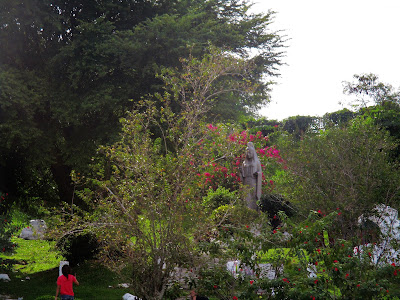MEDICAL CARE IN THE PHILLIPPINES A FOREIGNERS EXPERIENCE
INTRODUCTION
I returned from the Middle East to the Philippines after sugary for a serious illness. I received additional treatment at St Lukes Hospital Global City and prospects are good for a full recovery. So you have to deal with the situation at hand. You cannot change the wind but you can adjust the sails. This allows for a topic for what is the hospital treatment is like in the Philippines from someone who has experienced provincial hospitals to one of the best hospitals in Manila. (See full story below)
I returned from the Middle East to the Philippines after sugary for a serious illness. I received additional treatment at St Lukes Hospital Global City and prospects are good for a full recovery. So you have to deal with the situation at hand. You cannot change the wind but you can adjust the sails. This allows for a topic for what is the hospital treatment is like in the Philippines from someone who has experienced provincial hospitals to one of the best hospitals in Manila. (See full story below)
I was working in Egypt on a roster of 6 weeks on 3
weeks off. I was getting stomach pains and just putting it down to bad food or
maybe an ulcer. I got very sick and was transported by ambulance and underwent
emergency surgery at Port Galib hospital on the Red Sea. This hospital was
built to offer tourist to the area emergency medical care.
I spent 3 weeks in hospital before being allowed to
return to the Philippines under the escort of a doctor. I visited St Luke’s
Hospital Global City with the escort doctor and had a consultation with a
specialist.
I thought it would be better to fly back to Tacloban
and have my treatment there as I could be close to my wife and family. So I
parted company with the escort doctor and caught a flight home.
I had medical insurance here in the Philippines and
made contact with the provider. I was in the first year of my insurance and was
informed in the first year if you get sick it is regarded as a preexisting
condition. I was shocked I was not covered! To my relief the insurance from my
employment said they would cover all costs.
The wound was now showing signs of infection. I was
admitted to a local hospital in Tacloban and they recommended surgery to repair
the wound. The insurance company advised me to pay the hospital bill and they
would reimburse me. On discharge I had 130,000 peso to pay cash but the total
bill was 170,000 peso. I told the cashier I would go straight to the bank and
get the remaining money. It would take less than an hour. The cashier insisted
I had to go to the bank under the escort of a hospital security guard. This is
my first experience with the Philippine Medical System. There is no trust. Here
no money no treatment. Even with the guarantee of a major insurance company
from my employer they insisted a security guard made sure I did not skip town!
The wound was still infected so I decided at that
moment we would travel to Manila and seek treatment at St Luke’s Global City.
This time the insurance company produced a document as guarantee of payment for
al treatment. St Luke’s Hospital is one of the best hospitals in the
Philippines and the administration accepted the guarantee and no cash changed
hands.
ST LUKES MEDICAL CENTER GLOBAL CITY MANILA
I have read in many blogs medical treatment here in
the Philippines is not too expensive for foreigners visiting or living in the
Philippines. That maybe so if treatment only involves regular checkups. If you
require surgery or ongoing treatment then the medical bills can mount up. I had
insurance but I still viewed all final all accounts. The cost can be high! The
medical treatment I received was as good as any I have seen in western
countries, but at a cost. I have only praise and thanks to the nursing staff
and doctors at St Luke’s
The Philippine people have Phil health which I believe
covers 10% of medical costs. A farm laborer here in Leyte may earn 300 peso a
day when they can get work. With this money they must feed and cloth the
family. Then there is the cost of education. Many people who had university
degrees still only earn under 10,000 peso a month in this area. I spoke to one
guy who has a degree in information technology working at a resort in Tacloban.
His salary is only 350 peso per day. How
to they get by when a medical crisis arises?
Families do band together and if there is farm or land
they will either lease or sell. It must be so hard in many cases. I wonder how
devastating it must be if a child or family member were seriously ill, need
treatment and money was not available. I do not believe words could describe the
worry and fear. I hope all Philippine people have better access to health care
in the future




Comments
Post a Comment